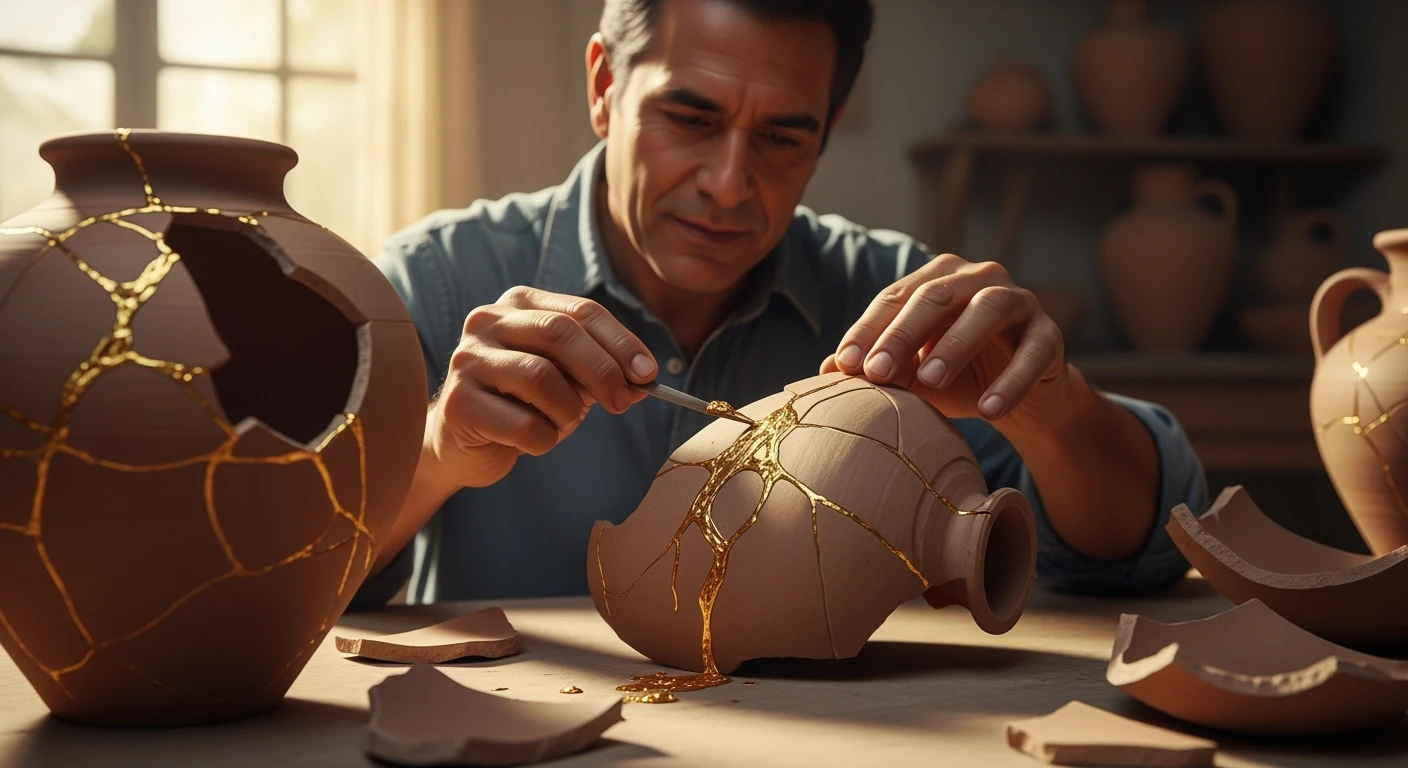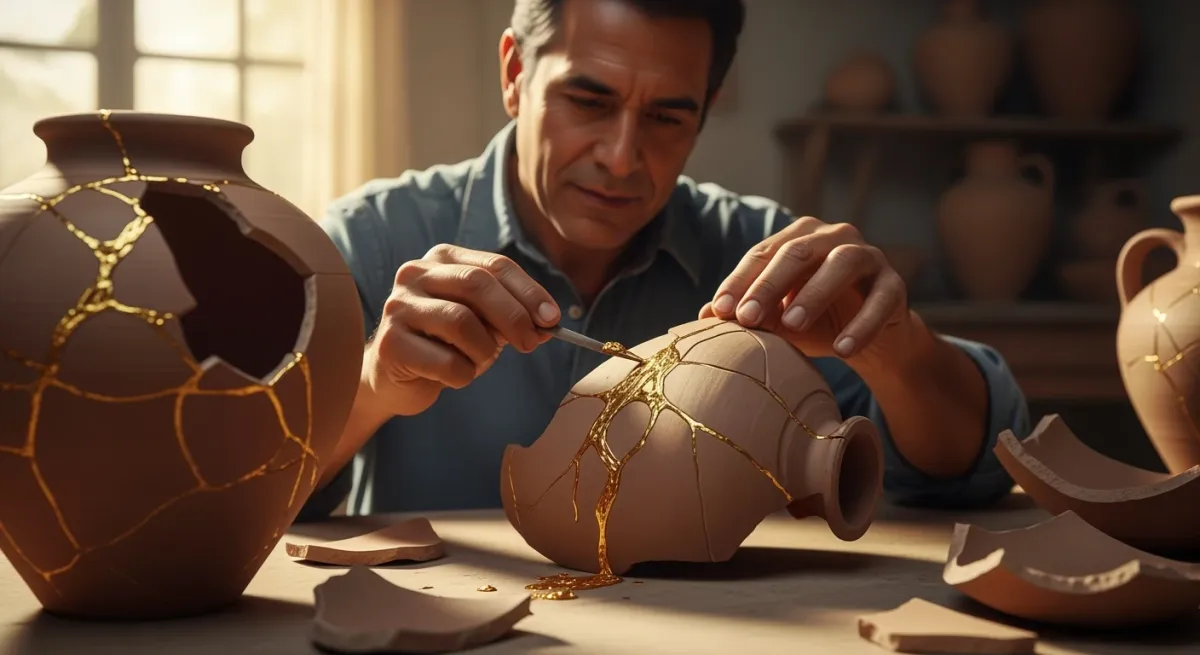Table of Contents
God Restores All Things: The Divine Promise of Complete Renewal
In a world that seems increasingly broken—where relationships shatter, dreams crumble, and hope feels distant—there’s a truth that can revolutionize your perspective and transform your future: God restores ALL things. Not some things. Not just the easy things. ALL things. This isn’t wishful thinking or positive psychology—this is the divine promise that forms the foundation of our faith and the bedrock of our hope.

The Divine Promise of Restoration
Peter’s words in Acts 3:21 reveal God’s ultimate plan: “Heaven must take Him in until the time comes for the restoration of all things, which God announced long ago through His holy prophets.” This isn’t just about the end times—it’s about God’s ongoing work in your life right now. Restoration isn’t just God’s future plan; it’s His present activity.
The word “restoration” in the original Greek means “to return to an original state” or “to make new again.” But God’s restoration goes beyond returning things to their original condition—He makes them better than they were before. He doesn’t just fix what’s broken; He transforms it into something more beautiful, more valuable, more purposeful.
Breaking Free from the “Broken Forever” Mentality
Too many people live under the crushing weight of believing that what’s broken in their lives will stay broken forever. They’ve accepted defeat in their marriages, given up on their dreams, resigned themselves to dysfunction, or concluded that their past mistakes have permanently disqualified them from God’s best.
The Lie of Permanent Damage
The enemy wants you to believe:
- “Your marriage is too damaged to save”
- “Your mistakes are too big to forgive”
- “Your dreams are too shattered to rebuild”
- “Your reputation is too tarnished to restore”
- “Your health is too compromised to heal”
- “Your finances are too broken to fix”
But these are lies designed to keep you from experiencing the restoration God has planned for you.
Four Dimensions of Divine Restoration
1. Relational Restoration
God specializes in healing broken relationships. He can restore trust where there’s been betrayal, rebuild love where there’s been hurt, and create unity where there’s been division. The same God who reconciled us to Himself can reconcile us to others.
2. Emotional Restoration
God heals broken hearts, wounded spirits, and damaged emotions. He doesn’t just bandage the pain—He transforms it into strength, wisdom, and compassion. Your deepest wounds can become your greatest ministry.
3. Purpose Restoration
God can resurrect dead dreams, revive abandoned visions, and restore lost purpose. What seems like a dead end to you is often a divine setup for a supernatural comeback. Your setbacks are setups for your comebacks.
4. Legacy Restoration
God can restore not just your present but your future. He can break generational curses, establish generational blessings, and ensure that your children and grandchildren inherit restoration rather than brokenness.
The Story of Maria’s Miraculous Restoration
Maria’s life looked like a series of broken pieces. Her marriage had ended in bitter divorce, her relationship with her teenage daughter was fractured, her business had failed, and she was battling depression. She felt like damaged goods—too broken for God to use, too shattered for restoration.
But Maria discovered the truth about God’s restoration power. She began to pray not just for healing but for restoration—for God to make her life more beautiful than it had ever been. She started attending a support group at her church, began counseling to address her emotional wounds, and slowly started rebuilding her relationship with her daughter.
Two years later, Maria’s life looked completely different. She had started a successful consulting business helping other women rebuild after divorce. Her relationship with her daughter was stronger than ever. She had met and married a godly man who loved her completely. Most importantly, she was using her story of restoration to help others believe in their own restoration.
Maria’s broken pieces hadn’t just been glued back together—they had been transformed into a beautiful mosaic that reflected God’s glory and brought hope to others.
Practical Steps to Experience Restoration
1. Acknowledge the Brokenness
Restoration begins with honesty. You can’t restore what you won’t acknowledge is broken. Stop pretending everything is fine and bring your brokenness to God.
2. Believe in God’s Restoration Power
Faith is essential for restoration. You must believe that God can and will restore what’s been broken in your life. Your faith activates His power.
3. Cooperate with the Process
Restoration is a partnership between you and God. He provides the power, but you must take the steps. This might mean seeking counseling, making difficult conversations, or changing destructive patterns.
4. Be Patient with the Timeline
Restoration takes time. God is more interested in doing it right than doing it quickly. Trust His timing and stay committed to the process.
5. Expect Something Better
Don’t just pray for God to fix what’s broken—pray for Him to make it better than it was before. God’s restoration always exceeds our expectations.
Overcoming Restoration Obstacles
When Others Don’t Believe
Not everyone will believe in your restoration. Some people are more comfortable with your brokenness than your breakthrough. Don’t let their unbelief limit your faith.
When Progress Seems Slow
Restoration rarely happens overnight. It’s usually a process of gradual healing and rebuilding. Celebrate small victories and trust that God is working even when you can’t see it.
When You Face Setbacks
Setbacks don’t mean God has given up on your restoration. They’re often part of the process, teaching you lessons you need for lasting change.
When You Feel Unworthy
Your worthiness isn’t based on your performance—it’s based on God’s love. You don’t earn restoration; you receive it as a gift of grace.
The Multiplication Effect of Restoration
When God restores your life, the impact extends far beyond you:
In Your Family: Your restoration breaks generational patterns and establishes new legacies of blessing.
In Your Community: Your story of restoration becomes a beacon of hope for others who are struggling.
In Your Sphere of Influence: People who witness your restoration begin to believe in their own possibilities for renewal.
In God’s Kingdom: Your restoration becomes a testimony to God’s power and goodness, drawing others to faith.
Living as a Restoration Agent
When you experience God’s restoration in your own life, you become equipped to help others experience restoration in theirs. You become:
- A voice of hope for the hopeless
- A testimony of God’s power for the doubtful
- A source of encouragement for the discouraged
- A living example of God’s restoration for the broken
The Promise of Complete Restoration
God’s restoration isn’t partial—it’s complete. He doesn’t just restore some areas of your life while leaving others broken. His plan is total restoration:
- Broken relationships → Restored and stronger
- Shattered dreams → Rebuilt and expanded
- Damaged reputation → Restored and honored
- Lost opportunities → New and better chances
- Wounded heart → Healed and whole
- Failed attempts → Successful outcomes
The Japanese Art of Kintsugi
There’s a beautiful Japanese art form called Kintsugi, where broken pottery is repaired with gold, making the restored piece more valuable and beautiful than the original. The cracks aren’t hidden—they’re highlighted with precious metal, turning the break into the most beautiful part of the piece.
This is exactly what God does with our broken lives. He doesn’t just fix the cracks—He fills them with His glory, making our restored lives more beautiful and valuable than they were before the breaking. Your scars become your strength, your wounds become your wisdom, and your brokenness becomes your beauty.
Conclusion: Your Restoration Begins Now
Whatever is broken in your life today—your marriage, your health, your finances, your dreams, your relationships, your reputation—God can restore it. Not only can He restore it, but He wants to restore it. Not only does He want to restore it, but He’s already working on your restoration.
The same God who spoke the universe into existence, who raised Jesus from the dead, who has been restoring broken lives for thousands of years, is ready to restore yours. Your brokenness is not your final chapter—it’s the setup for your greatest comeback.
Don’t settle for living with broken pieces. Don’t accept that what’s damaged must stay damaged. Don’t believe the lie that your situation is beyond repair. God restores ALL things, and that includes everything that’s broken in your life.
Your restoration story is waiting to be written. Your comeback is being orchestrated. Your renewal is on the way. The God of restoration is ready to make all things new in your life.
The question isn’t whether God can restore what’s broken in your life—the question is whether you’ll trust Him to do it. Your restoration begins the moment you believe it’s possible.
God restores all things. Including you.
[Embrace Restoration]




Share Your Thoughts
Join the conversation! Share your insights, ask questions, or discuss how this content has impacted your faith journey.
Prefer Email?
You can also reach out to us directly via email for private discussions or feedback.
Community Guidelines
Our Comment Policy
Note: Comments are powered by GitHub and require a GitHub account. This helps maintain quality discussions and reduces spam.